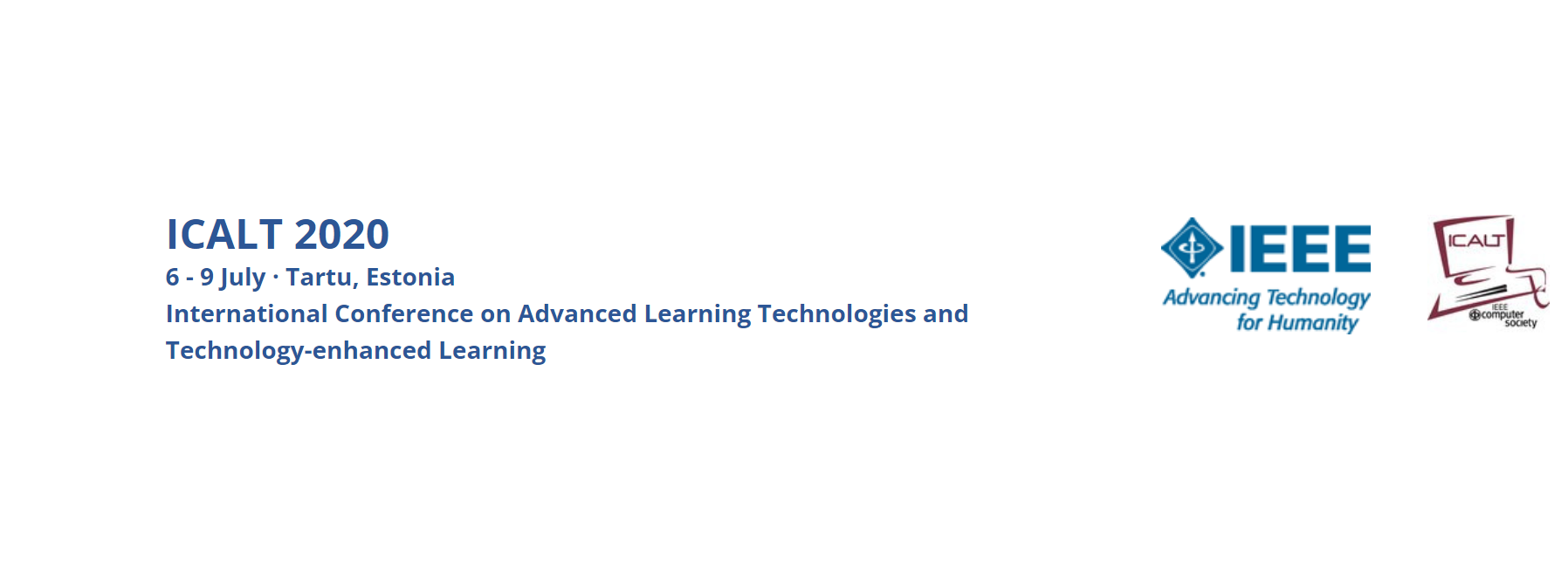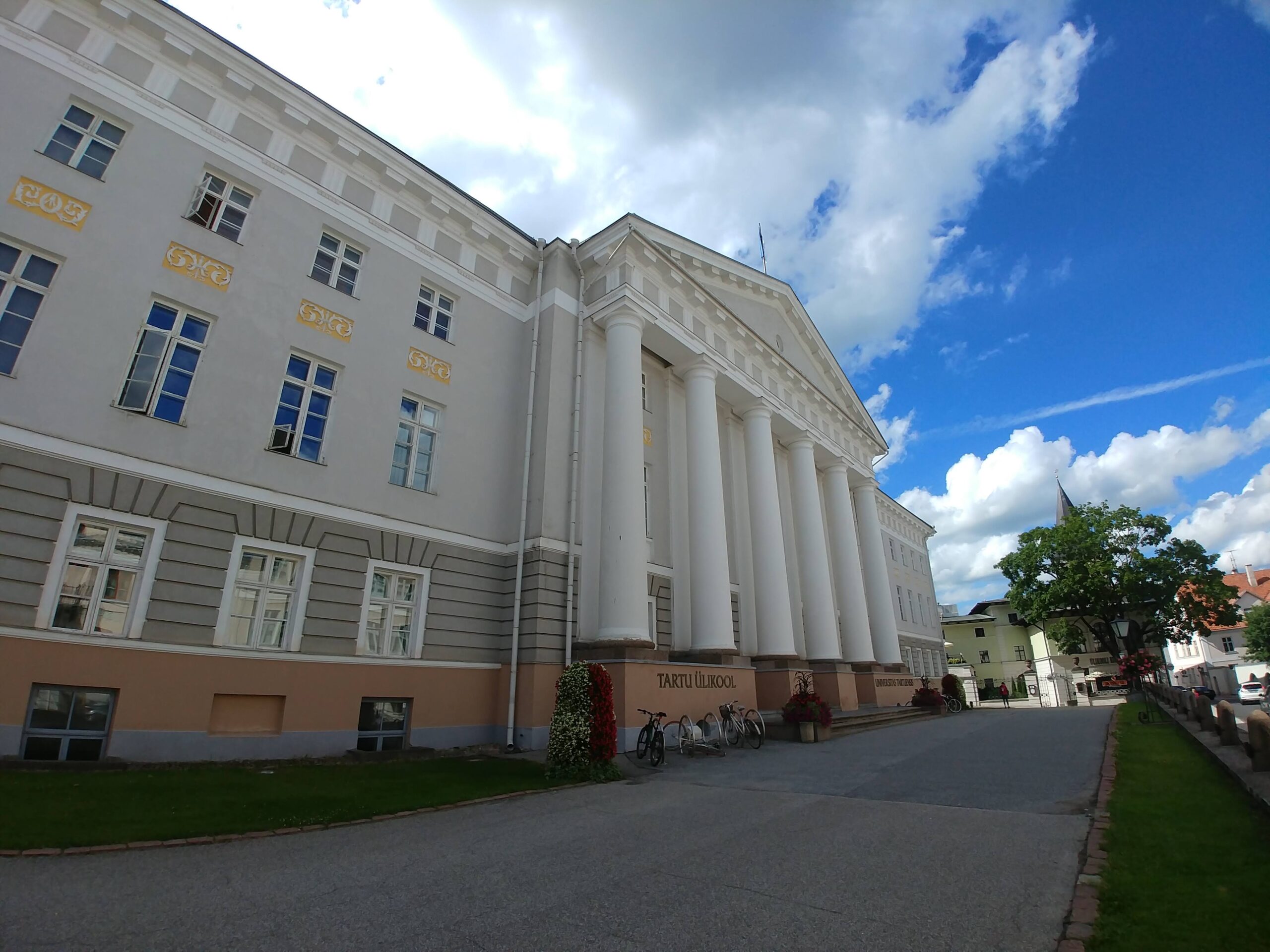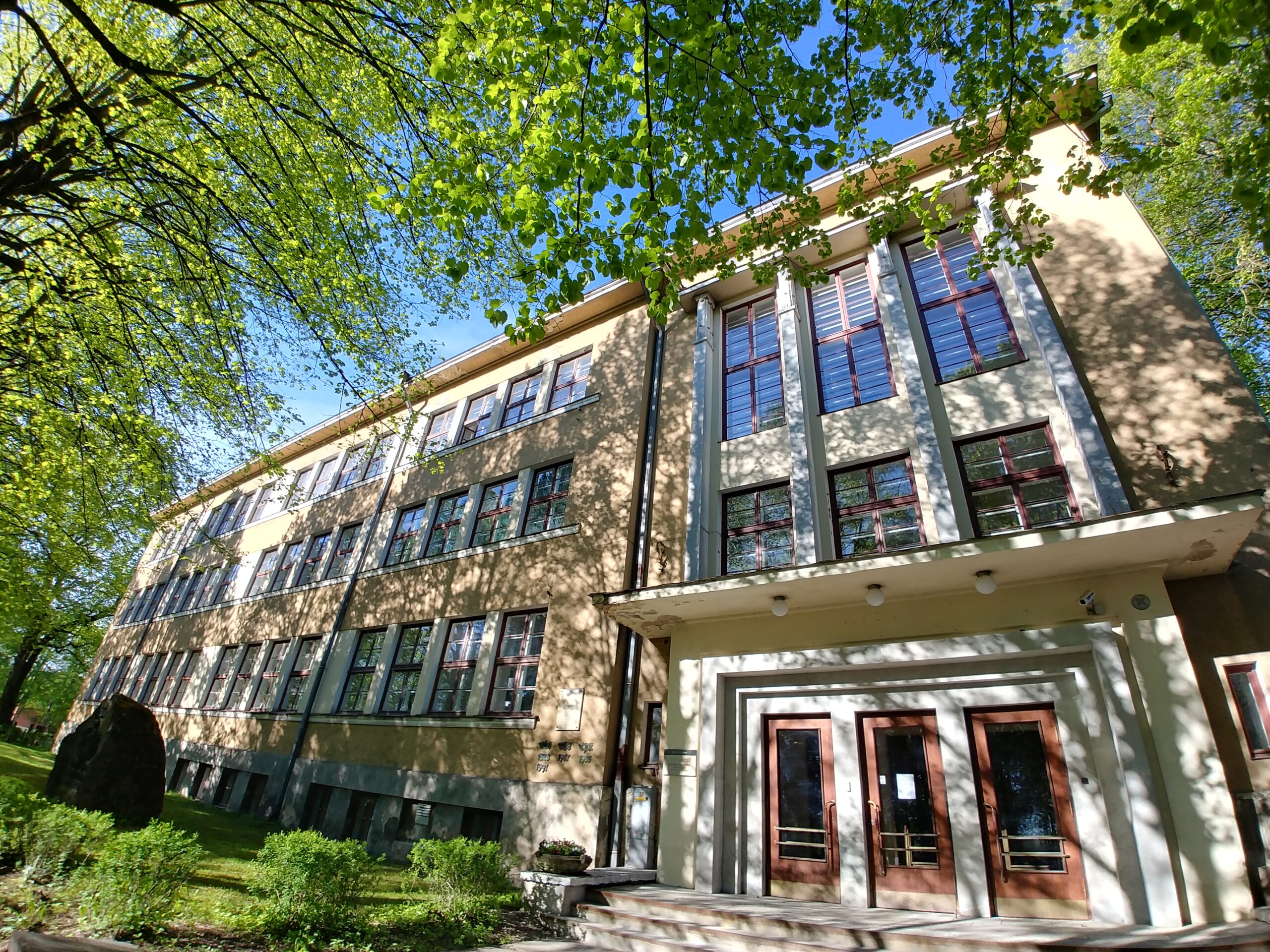
About Us
University of Tartu (Local Host)
 The University of Tartu (UT), founded in 1632, is Estonia’s leading centre of research and training.
The University of Tartu (UT), founded in 1632, is Estonia’s leading centre of research and training.
UT offers 195 research-based graduate and postgraduate degree programs and deals with both fundamental and applied research. 13 000 students (including over 1600 international students) study in 4 faculties (Arts and Humanities, Medicine, Science and Technology, Social Sciences).
UT belongs to the top 1.2% of the world’s best universities, ranking 301st in the QS World University Rankings 2020 and within the 301–350 range in the Times Higher Education (THE) World University Rankings 2020. UT is placed 4th in the QS University Rankings: Emerging Europe and Central Asia (QS EECA University Rankings 2020).
Read more about UT at https://www.ut.ee/en.
 The Institute of Education, hosting this year’s ICALT conference, focuses on educational research in a wide area from teacher education to educational technologies. The Institute has been actively involved in several international networks and professional associations. We also offer an international PhD programme on education and international master’s programme on Educational Technology.
The Institute of Education, hosting this year’s ICALT conference, focuses on educational research in a wide area from teacher education to educational technologies. The Institute has been actively involved in several international networks and professional associations. We also offer an international PhD programme on education and international master’s programme on Educational Technology.
The ICALT 2020 local organizing chair is Professor Margus Pedaste, vice-chair of the IEEE Estonian section.
Read more about the Institute of Education at https://www.ht.ut.ee/en.
About IEEE ICALT
ICALT is an annual international conference on Advanced Learning Technologies and Technology-enhanced Learning organized by the IEEE Computer Society and the IEEE Technical Committee on Learning Technology.
After its kick-off as IWALT in Palmerston North, New Zealand (2000), ICALT has been held in Madison, USA (2001), Kazan, Russia (2002), Athens, Greece (2003), Joensuu, Finland (2004), Kaohsiung, Taiwan (2005), Kerkade, The Netherlands (2006), Niigata, Japan (2007), Santander, Spain (2008), Riga, Latvia (2009), Sousse, Tunisia (2010), Athens, Georgia, USA (2011), Rome, Italy (2012), Beijing, China (2013), Athens, Greece (2014), Hualien, Taiwan (2015), Austin, Texas, USA (2016), Timisoara, Romania (2017), Mumbai, India (2018), and Maceió, Brazil (2019).
About IEEE TCLT
The IEEE Technical Committee on Learning Technology (TCLT) has been founded on the premise that emerging technology has the potential to dramatically improve learning. The purpose of this technical committee is to contribute to the field of Learning Technology and to serve the needs of professionals working in this field.
The IEEE Technical Committee on Learning Technology (TCLT) has initiated a number of activities to promote research and development of Advanced Learning Technologies. These activities foster collaboration among academic and professional communities. Click here to learn about IEEE TCLT in greater detail.
IEEE Computer Society Open Conference Statement
Equity, Diversity, and Inclusion are central to the goals of the IEEE Computer Society and all of its conferences. Equity at its heart is about removing barriers, biases, and obstacles that impede equal access and opportunity to succeed. Diversity is fundamentally about valuing human differences and recognizing diverse talents. Inclusion is the active engagement of Diversity and Equity.
A goal of the IEEE Computer Society is to foster an environment in which all individuals are entitled to participate in any IEEE Computer Society activity free of discrimination. For this reason, the IEEE Computer Society is firmly committed to team compositions in all sponsored activities, including but not limited to, technical committees, steering committees, conference organizations, standards committees, and ad hoc committees that display Equity, Diversity, and Inclusion.
IEEE Computer Society meetings, conferences and workshops must provide a welcoming, open and safe environment, that embraces the value of every person, regardless of race, colour, sex, sexual orientation, gender identity or expression, age, marital status, religion, national origin, ancestry, or disability. All individuals are entitled to participate in any IEEE Computer Society activity free of discrimination, including harassment based on any of the above factors.
IEEE Event Conduct and Safety Statement
IEEE believes that science, technology, and engineering are fundamental human activities, for which openness, international collaboration, and the free flow of talent and ideas are essential. Its meetings, conferences, and other events seek to enable engaging, thought provoking conversations that support IEEE’s core mission of advancing technology for humanity. Accordingly, IEEE is committed to providing a safe, productive, and welcoming environment to all participants, including staff and vendors, at IEEE-related events.
IEEE has no tolerance for discrimination, harassment, or bullying in any form at IEEE-related events. All participants have the right to pursue shared interests without harassment or discrimination in an environment that supports diversity and inclusion. Participants are expected to adhere to these principles and respect the rights of others.
IEEE seeks to provide a secure environment at its events. Participants should report any behaviour inconsistent with the principles outlined here, to on-site staff, security or venue personnel, or to eventconduct@ieee.org.


